Guest Article- In Memoriam: ‘Iron Man’ Mick Murphy
Where to begin with this Guest Article? When you start talking about a person who makes Fiorenzo Magni sound like, maybe he wasn’t so tough, that is saying a lot! Who needs an inner-tube? On the sliding scale of Hardmen there are a few outliers, a few data points way out past the crowd. Mick Murphy is one of those. Thanks to @Johnny Mac for writing this up.
VLVV, Gianni
I’ve always had a soft spot for the Hardmen from Ireland. My parents are from Waterford, the same place as Sean Kelly, so I suppose it’s in the blood. I grew up watching him and Stephen Roche race in the ‘80s, and still can’t think of Roche’s climb up to La Plagne in Le Tour of ‘87 without getting goose bumps (‘Just who is that rider coming up behind? That looks like Roche. That looks like Stephen Roche! It’s Stephen Roche!’). I was once mistaken for Sean Kelly on a ride around Ireland. I’d just got off the bike – had they seen me riding it they would not have made that mistake I can assure you.
So it was with some sadness that I learned of the death at the age of 81 of one of the true legends of Irish cycling, and the original Hardman from Ireland, ‘Iron Man’ Mick Murphy. Murphy is best known for winning the Rás Tailteann (an eight-day stage race held annually in Ireland each May) in 1958, having just taken-up the sport the previous year (subsequent winners include Stephen Roche & Tony Martin).
Legend has it that on one stage he suffered a mechanical in the last 10 miles, and having no support jumped into a farmer’s field and borrowed a bike, an old bone-shaker with no gears, but it was enough for him to finish the stage and keep him in contention with the leaders. On Stage Four he crashed and broke his collarbone but, against doctor’s orders (he climbed out of the window of the hospital and over the wall), he continued the race for the next four days and went on to take the winner’s jersey by more than five minutes.
He forced the pace so much that year that some of his stage times have yet to be bettered half a century later. ‘The others didn’t like me because I made racing too hard’, said Murphy, who would go for a 40-mile ride at the end of a stage to cool down.
He raced in the Rás for the next two years but then quit cycling in disgust over what he saw as a lack of support for, and poor management of, his team from Kerry.
In addition to cycling Murphy competed in long distance running, boxing, wrestling & even darts. He trained by using concrete blocks attached to an iron bar as weights to strengthen his leg muscles, and is also said to have drunk blood straight from a cow – a tip he had been given by Russian weightlifters or the Masai warriors from Africa, depending on which version you hear. I’m not sure if that would pass a haemocrit test these days.
Murphy then went on to work in construction, and even had a few stints in the circus (he was said to be able to walk on his hands for a mile), before returning to Ireland after a bad accident on a building site in England. He saw out his days in a ramshackle house in the Irish countryside with no heating or running water, but by all accounts he was happy and resisted any offers of help.
There’s some great footage on-line of Mick being interviewed in his home, which I suggest you seek out and watch (see below). There’s also a nice tribute to him on the BBC Radio 4 program ‘Last Word’ which can be accessed here – he’s the first person they discuss.
In our modern cycling world of carefully managed press conferences and marginal gains, we should celebrate and mourn the passing of characters like Mick Murphy as we won’t see their like again.
RIP ‘Iron Man’ Mick Murphy, 1934 – 2015
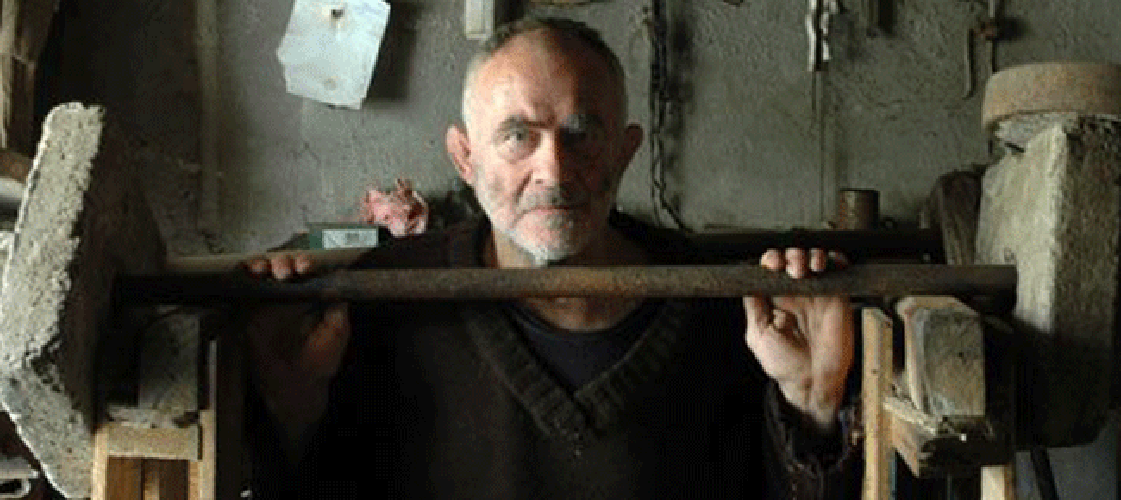
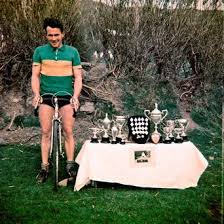
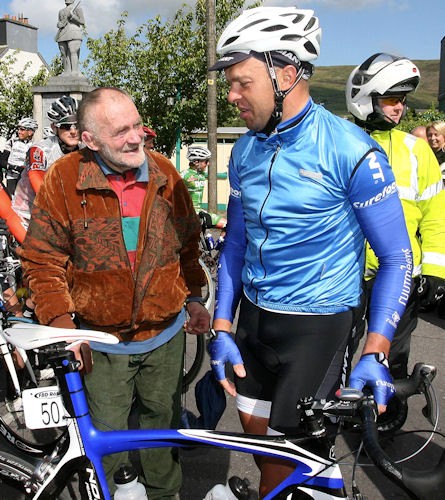
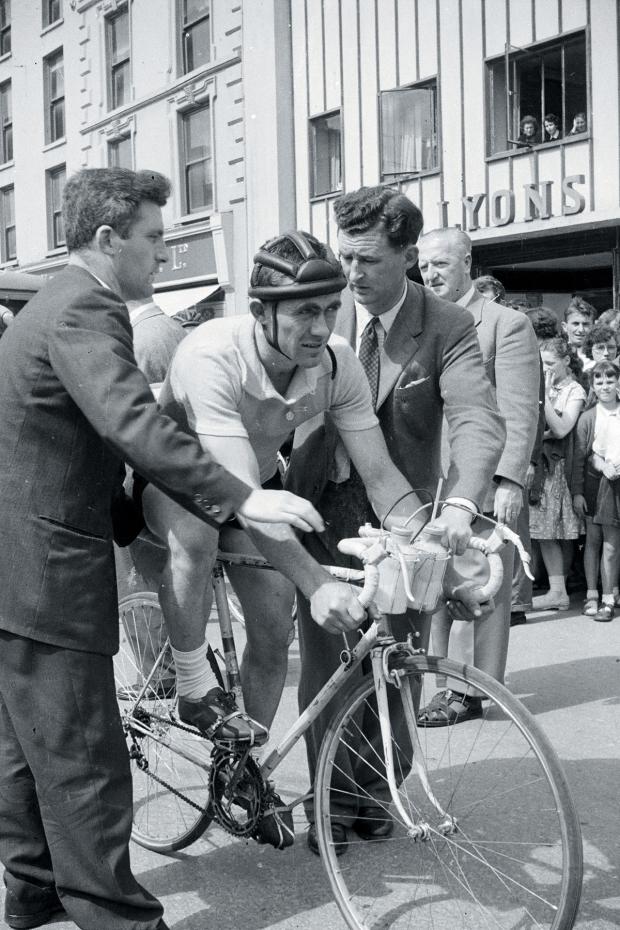
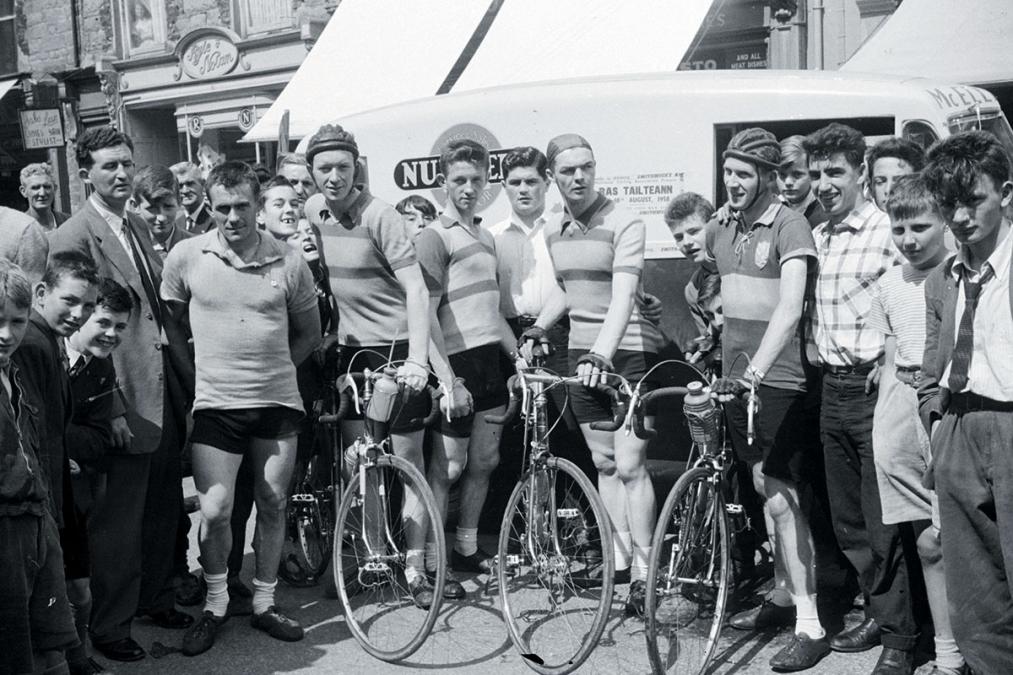
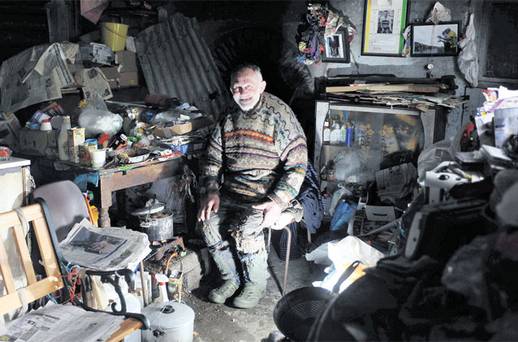
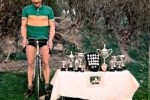
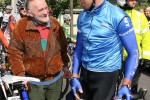
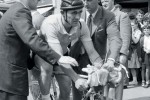
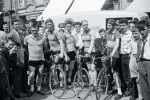
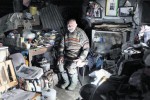
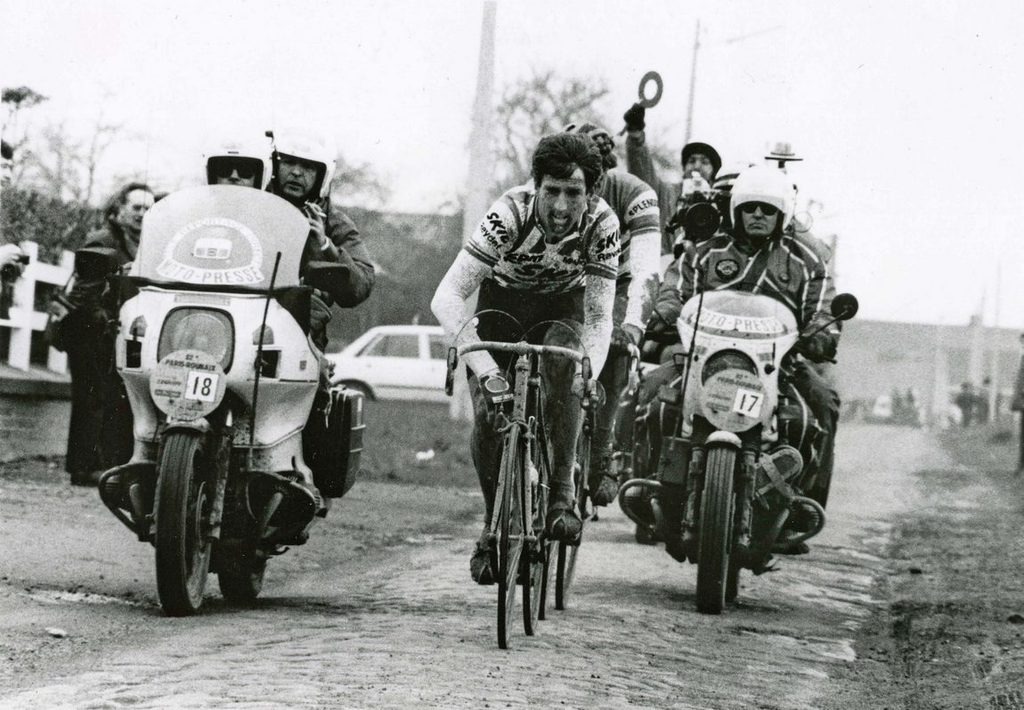
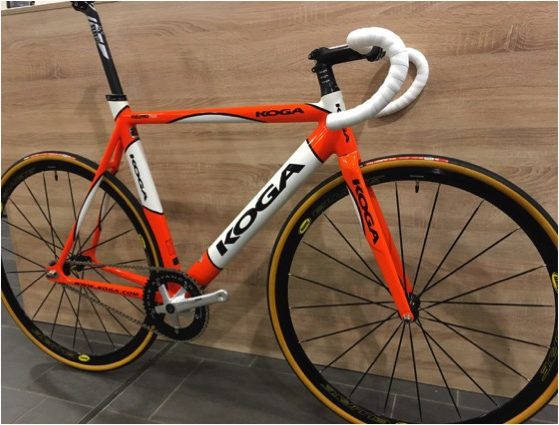
Thnx for posting. Total reverence.
Really, really great. Thanks for this piece. Makes me think of my grandfathers. One was a backwoods logger from northern Maine who was born in 1910 and worked in the woods until he married and then moved to Vermont and worked in the Granite mines until he died from “miner’s lung” COPD. Hardcore man. The other was born in 1903 and raised on a backwoods Vermont dairy farm that he took over when his dad died and he worked it until he died in his late 70’s. Never had any money to his name to the day he died but God DAMN he lived hard and he lived well. Nothing but respect for all three of these men. Glad to know about Mick Murphy. My life is better knowing that he lived.
You wonder what he could do in the modern peloton were he born in a different time. Probably kick ass I’ll wager.
Fast Eddy has had some nice pieces about him, including a sighting at last year’s Ras (day four) on http://www.flandriacafe.com.
Wow indeed. They don’t make them like Mick anymore. Great post! I’m from Scotland and feck, I think I could maybe understand one word in ten . . .
@wiscot
Thanks. Luckily with my Irish family I can decipher most of what he says. Because my parents are from Waterford, whenever I hear Sean Kelly being interviewed it just sounds like my Dad talking. There’s another hardman, my Dad – left school at 13 due to a clerical error (he was one of 14 kids so they registered the births in batches to keep the cost down and got his year of birth wrong) and was in full time manual work from then until he retired a few years ago. I can’t help but think we have it easy these days.
@Johnny Mac
Ain’t that the truth! Cool story. Interesting cat. Cheers
I am always in a state of awe reading about those Hardmen of the WWII and immediate post-WWII generations. There was no quit or cowardliness in these individuals. They had no excuses or complaints when the going got difficult or when they found themselves up against impossible odds. They overcame obstacles on sheer will and determination. Those gentlemen had no million dollar contracts as incentives and few cared about reaching celebrity status. Today’s youth should take these lessons to heart. Sadly, few ever will.
@wiscot
This kinda reminds me of the story of Ian Steel, another hardman racer of the 50s, who sadly passed away only a few months ago.
http://www.theguardian.com/sport/2015/oct/26/ian-steel
Great story, thanks for sharing.
“Attack in the morning, get on your bike and attack in the morning”. Aye, Sir.
Finely written piece, @Johnny Mac – great read. Thank you for this.
@Ccos, cheers for pointing me in the direction of the Flandrian Cafe at precisely the right moment, it would seem. The hunt for a copy of Michael Barry’s “Shadows on the Road” has officially begun.
https://www.youtube.com/watch?v=jdym9yAtiuk
Fucking love this band, I’ve seen them live a few times and every time is amazing. This story made me think of this song.
First time poster, long-term reader of v articles just stopping in to say thanks for covering iron Mick. Know of a few people who rode on that Kerry team with him, and heard some stories. He slept in cow sheds on straw during the rás, drank bulls blood, won the rás. I heard he trained by doing the ring of Kerry twice in one day, working in between. That’s 170km a lap and often fairly harsh weather down there too.
Like many others, this reminds me of my own grandpa… Worked in the mill, and other small jobs to bring food to the table, but also raced bikes along with his siblings, all of them classic chilean hardmen, racing on gravel roads, 140k classics during sundays…
Since my gramps passed away some years ago, I didnt quite have the chance to hear his stories while i was also absorbed in cycling, but I had the luck to meet one of the guys that used to race with him: I commissioned a couple of jobs fron him, and when i went to pick them up noticed he had a photo of my grandfather’s club! He told me they were friends and my grandpa had the nickname “big clock”, stoic as he was, whenever asked where the race ended, he’d say: ” by the big clock” and keep preparing his bike. My uncle, “bear paws”, was 6’7”, intimidating most rivals…
He told me about many other stories, that end summing up that these guys used tteacjoy cycling in a simple way that many forget nowadays with all the technological advances, and made being hardmen a way of life… They had rule V engraved on their hearts and souls, and left their teachings for those of us that are willing to take them and engrave the V in our hearts as well…
@Neil
Thanks for the link. Growing up in Scotland I was vaguely aware of Steel. I think my brother knew his daughter. The Peace Race was always a tough one and in the 50s when the Iron Curtain was still very much in place I can’t even imagine how hard it would have been for a “western” rider to win it.
Love the bit about the British team shaking hands with the Marshall Rokossovskyand saying “bollocks.”
Wow, thank you for this story!
Yes, at a time when far too many people won’t do anything that causes slight discomfort, from sports to hearing that they are underperforming in some way, Mick is a reminder that good folks are still out there.
I’ll keep him in mind the next time I’m disappointed with modern life, and use him as a reminder of characters work admiring.
@wiscot
Definitely some similarities in the stories of Steel & Murphy. Two promising cycling careers cut short by mismanagement in their respective teams. Who knows what either could have gone on to achieve if given the chance.
great write-up!
Cillian Kelly from TWiCH did a great piece on Mick Murphy very similar to this shortly after he passed.
@Johnny Mac that is a great tribute to someone you clearly respected and admired. Really good piece. I had read about Mick before, it may have been in Procycling, but was unaware he had died.
A young Mick Murphy — 1958 photo from the race site —some interesting info there if you care to read —
http://www.rastailteann.com/event/
@Duntov
Thanks for the info @Duntov. This link takes you to the relevant page on the Website:
1958 Ras – Mick Murphy
The more I read about Mick the more interesting he becomes, and his warmth & personality shine through.
Thanks again.
Also, for anyone who might be interested in learning more about the legend that is Mick Murphy, there is a fascinating chapter dedicated to him in a book (remember those?) entitled The Rás: The Story of Ireland’s Unique Bike Race by Tom Daly.